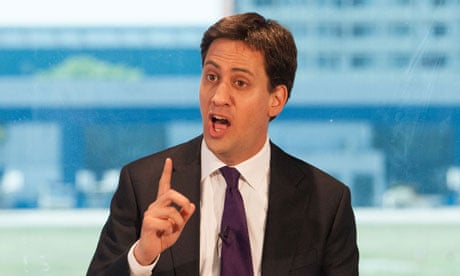Since becoming Labour party leader, Ed Miliband has never really had control of his party machine, or even seemed to take that much interest in it. Instead, he has let others wield control behind the scenes, even failing to secure his own preferred party general secretary.
At one point he considered staging a party membership referendum over the strength of the union vote at party conference, but backed off, sensing how angry the unions would be.
"Ed never had his own machine," says one source. "By contrast some people define their politics by power, control patronage. They have filled the vacuum, and Ed was grateful to Tom Watson for delivering votes for him at the latter stage of the leadership election through second preferences."
So it is argued that Miliband has let too many things pass in his own name. Judging by the Unite minutes, the union even claimed to have established a candidate selection programme in the leader's office.
The resignation of Watson is less about the individual than it is about an institution, another source said. "Unite has been exposed as organised conspiracy. Unite are not like a normal trade union. First they denounce you as a Blairite zombie and then they move to deselect you. They sign a constituency development agreement so long as you will adhere to Unite politics. They organise the timing of constituency selection so only a union official has the three months spare to win the seat."
In a view that would perhaps be regarded as extreme and not one shared by the leader's office, the source added: "There is a relationship between the unions and the party that has to change. It is not only the right thing to do, it is now a political necessity. If you think Lynton Crosby [who is running the Tories' 2015 election campaign] is going to use the party-union link in one outing at prime minister's questions, and not repeatedly, you have a more generous view of Lynton Crosby than I do."
Unite insists all it is doing is trying to install more working-class people in parliament, that it is using its legitimate membership to bring that aim about.
Briefings from Miliband's office have been trying to contain the problem, insisting it is confined to controversy about the selection of a candidate to replace Eric Joyce in Falkirk, where Unite was accused of trying to manipulate the result.
The Falkirk selection is now to be run by the party nationally, and two individuals – the Falkirk party chairman, Stephen Deans, and Karie Murphy, the Unite-backed prospective candidate and a worker in Watson's office – have been suspended from the party.
In addition, due to the Falkirk events, a scheme whereby unions could legitimately sign up members to the Labour party and pay the fees on their behalf is to be ended. Ordinary union members can be encouraged to join the party but no longer through schemes that can be tied to individual party selections.
Labour officials insist that is the end of the matter. There has been no evidence of wrongdoing by Unite in any other parliamentary selection and no suggestion that Watson knew anything about what his office worker had been doing in Falkirk.
The party's report on Falkirk could not be published, as Watson suggested, as evidence was given confidentially. Officials who saw the private Falkirk report insisted it showed no evidence that the Unite general secretary, Len McCluskey, was aware of how precisely party recruitment was taking place.
But if Labour officials thought they could draw a line under the issue, they were mistaken. Watson insisted in his resignation letter that he thought the Falkirk report, if published, would show that a lot of "spurious suppositions" had been written.
McCluskey went further, saying he had lost faith in the integrity of the Labour party HQ, and demanded an independent inquiry. He claimed the report prepared for the Labour party general secretary, Iain McNicol, was "simply a stitch-up designed to produce some evidence, however threadbare, to justify predetermined decisions taken in relation to Falkirk". With these remarks, he was impugning the integrity of the party HQ his union helps fund.
He said he had no option but to demand an independent inquiry, presumably something he will demand at a meeting of Labour's organisation sub-committee due to meet on Tuesday.
Such inflammatory language pretty well gives Miliband no choice but to see this as a fight he cannot afford to lose. By temperament he is not a man who seeks internal confrontation. He cherishes party unity, and dislikes factionalism whether it comes from Unite, or from Progress, the Blairite thinktank. He disliked intensely the attempts by Tony Blair to define himself politically through conflicts with his own party.
But arguably he has for too long turned a blind eye to what has been going on in his party, and simply failed to recognise that when unions, through mergers, get as big as Unite and are led by such determined men as McCluskey, power battles must be fought and won.
